Share
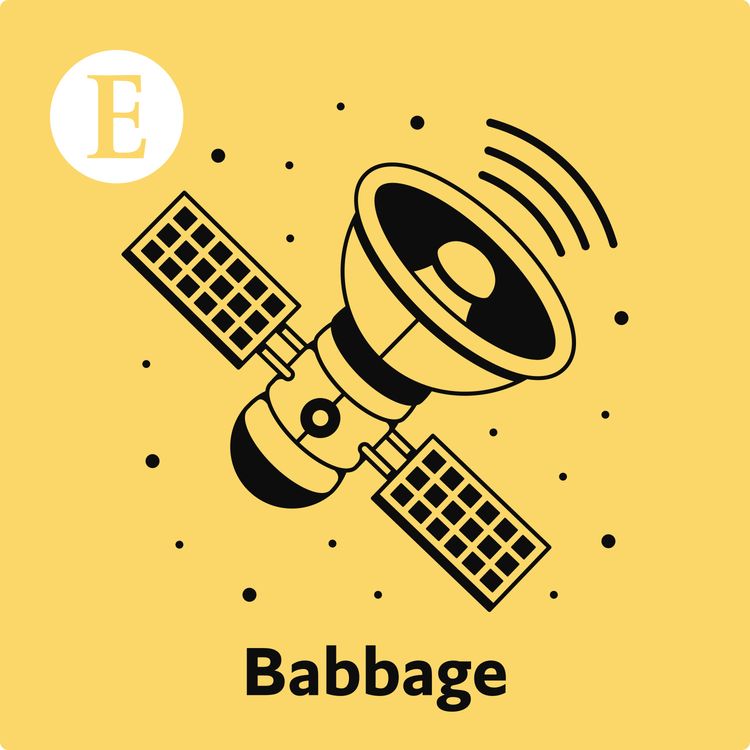
Babbage from The Economist
Babbage: Deb Chachra on the value of great infrastructure
From roads to telecommunications, networks of infrastructure define people’s lives, but are often hidden from view. Our guest wants people to step back, look at and appreciate the infrastructure around them. As the climate changes and landscapes shift, societies need to prepare for an increasingly unpredictable world by building better infrastructure for a more effective, efficient and equitable future.
Alok Jha, The Economist’s science and technology editor, interviews Deb Chachra, a materials science professor at Olin College of Engineering and the author of “How Infrastructure Works”, a new book about the intersection of technology and society.
Sign up for Economist Podcasts+ now and get 50% off your subscription with our limited time offer. You will not be charged until Economist Podcasts+ launches.
If you’re already a subscriber to The Economist, you’ll have full access to all our shows as part of your subscription.
For more information about Economist Podcasts+, including how to get access, please visit our FAQs page.
More episodes
View all episodes

Lone dangers: the physical toll of social isolation
34:57|Loneliness and social isolation are connected to around 100 deaths every hour, according to the World Health Organisation. Feeling lonely has been linked to cardiovascular disease, neurological conditions and problems with the immune system. Developing better social connections could improve millions of peoples’ health, but doing so is not as simple as it sounds.Host: Alok Jha, The Economist’s science and technology editor. Guests: The Economist’s Ainslie Johnstone; Julianne Holt-Lunstad of Brigham Young University. Thanks to Patrick Abrahams, Helen Kingston and Caroline Blake in Frome, England. Transcripts of our podcasts are available via economist.com/podcasts.Listen to what matters most, from global politics and business to science and technology—subscribe to Economist Podcasts+.For more information about how to access Economist Podcasts+, please visit our FAQs page or watch our video explaining how to link your account.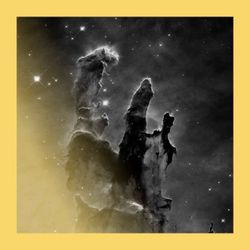
Mark McCaughrean: the astronomer’s guide to the cosmos
38:44|Fancy taking a trip to outer space? Explore the most extraordinary corners of the universe with astronomer Mark McCaughrean as your tour guide. In this episode, he tells us about everything from the curious clouds and comets in our own solar system, to distant stellar nurseries and whether or not we should be worried that our galaxy, the Milky Way, is on a collision course with a neighbour, Andromeda.Host: Alok Jha, The Economist’s science and technology editor. Guest: Mark McCaughrean of the Max Planck Institute for Astronomy and the author of “111 Places in Space That You Must Not Miss”.Transcripts of our podcasts are available via economist.com/podcasts.Listen to what matters most, from global politics and business to science and technology—subscribe to Economist Podcasts+.For more information about how to access Economist Podcasts+, please visit our FAQs page or watch our video explaining how to link your account.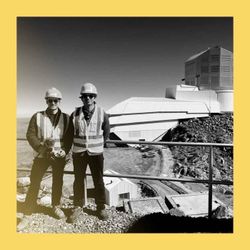
The discovery machine: a highlight from 2025
57:09|In the summer of 2025, we travelled to the Vera Rubin Observatory, a new telescope in Chile. This week, we’re revisiting that trip to the Andes Mountains, which showed how the Rubin Observatory’s upcoming decade-long sky survey hopes to uncover huge cosmological mysteries. In doing so, it is changing the way astronomy is practised.Host: Alok Jha, The Economist’s science and technology editor. Contributors: Victor Krabbendam, Stephanie Deppe, Leanne Guy, Yusra AlSayyad and William O’Mullane of the Vera Rubin Observatory. Listen to the full episodes here—part one and part two. Transcripts of our podcasts are available via economist.com/podcasts.Listen to what matters most, from global politics and business to science and technology—subscribe to Economist Podcasts+.For more information about how to access Economist Podcasts+, please visit our FAQs page or watch our video explaining how to link your account.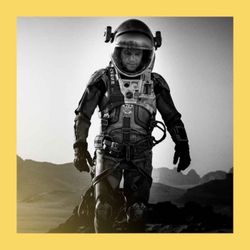
Film club: our sci-fi favourites
43:47|What makes a great science fiction film? In this episode, our science correspondents—and Babbage listeners—bring their favourite sci-fi movies to our Christmas film club. Host: Alok Jha, The Economist’s science and technology editor. Guests: The Economist’s Alex Hern, Natasha Loder, Ainslie Johnstone, Tom Standage and Jan Piotrowski. Special thanks to all of our listeners who sent us their favourite sci-fi films.Transcripts of our podcasts are available via economist.com/podcasts.Listen to what matters most, from global politics and business to science and technology—subscribe to Economist Podcasts+.For more information about how to access Economist Podcasts+, please visit our FAQs page or watch our video explaining how to link your account.
Surviving Christmas: your evidence-based guide
39:26|It’s the season of mince pies, endless chocolate and mulled wine. How bad is all the sugary food we’re eating, really? And why do hangovers seem to get worse with age? This week, our correspondents provide an evidence-based guide on how to survive—and thrive—over the holidays.Host: Alok Jha, The Economist’s science and technology editor. Guests: The Economist’s Slavea Chankova, Benjamin Sutherland and Tim Cross.Listen to our previous episodes on alcohol alternatives, with Professor David Nutt and how to understand the nature of risk, with Professor Sir David Spiegelhalter. Transcripts of our podcasts are available via economist.com/podcasts.Listen to what matters most, from global politics and business to science and technology—subscribe to Economist Podcasts+.For more information about how to access Economist Podcasts+, please visit our FAQs page or watch our video explaining how to link your account.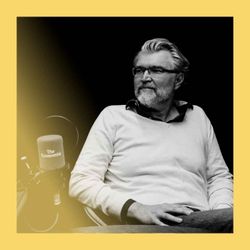
Unfinished business (part 2): fixing the “biggest problem” in physics
41:17|How is it that quantum physics governs the very smallest things in the universe, yet classical, Newtonian rules describe the movements of everything else, from people to planets? In the second of two episodes to mark the centenary of quantum physics, we hear how the boundary between the quantum and classical worlds causes huge inconsistencies—and a debate about the nature of reality itself. Our guest today explains his radical vision for fixing those problems and building a consistent understanding of the universe.Host: Alok Jha, The Economist’s science and technology editor. Guest: Vlatko Vedral of the University of Oxford and the author of “Portals to a New Reality”. If you can’t get enough of quantum physics, listen to our 2022 interview with Nobel laureate Anton Zeilinger, one of the scientists who proved that entanglement is a real phenomenon.Transcripts of our podcasts are available via economist.com/podcasts.Listen to what matters most, from global politics and business to science and technology—subscribe to Economist Podcasts+.For more information about how to access Economist Podcasts+, please visit our FAQs page or watch our video explaining how to link your account.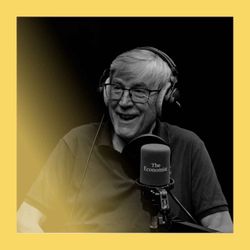
Unfinished business (part 1): quantum physics turns 100
45:53|At the turn of the 20th century, physicists realised their understanding of the subatomic world was wrong. A new theory was born: quantum mechanics. Despite defying everyday notions of the nature of reality, quantum physics has had a profound impact on both basic science and modern technology. In the first of two episodes to mark the centenary of the birth of quantum physics, our guest this week explains what this science has done for humanity already and what it will do next. Host: Alok Jha, The Economist’s science and technology editor. Guest: Paul Davies of Arizona State University and the author of “Quantum 2.0”. Transcripts of our podcasts are available via economist.com/podcasts.Listen to what matters most, from global politics and business to science and technology—subscribe to Economist Podcasts+.For more information about how to access Economist Podcasts+, please visit our FAQs page or watch our video explaining how to link your account.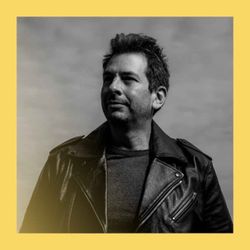
Blaise Agüera y Arcas: why AI really is intelligent
44:25|Whether or not AI models really are “intelligent” is a philosophical and scientific question with profound consequences for how people use and develop the technology. But what does “intelligence” really mean? Blaise Agüera y Arcas has a provocative answer: what if intelligence—and all of life—is just a product of computation?Host: Alok Jha, The Economist’s science and technology editor. Guest: Blaise Agüera y Arcas, CTO of technology & society at Google and the author of “What is Intelligence?”If you enjoyed this episode, scroll back to our two-part series, which asked: what is artificial general intelligence? Or, to learn how biology inspired the AI systems of today, find our series on the science that built the AI revolution. Transcripts of our podcasts are available via economist.com/podcasts.Listen to what matters most, from global politics and business to science and technology—subscribe to Economist Podcasts+.For more information about how to access Economist Podcasts+, please visit our FAQs page or watch our video explaining how to link your account.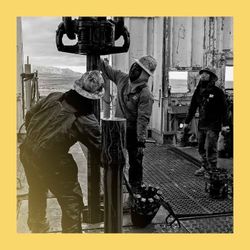
Hotting up: the geothermal revolution
40:19|Geothermal energy has long been neglected—it currently provides less than 1% of the world’s electricity. That’s because very few places on Earth have the right conditions to enable geothermal plants to work. But that’s changing, thanks to a new suite of technologies. Could geothermal soon rival nuclear power?Host: Alok Jha, The Economist’s science and technology editor. Guests: The Economist’s Vijay Vaitheeswaran; Jack Norbeck of Fervo Energy; James Benetatos of Quaise Energy; and Cindy Taff of Sage Geosystems. Transcripts of our podcasts are available via economist.com/podcasts.Listen to what matters most, from global politics and business to science and technology—subscribe to Economist Podcasts+.For more information about how to access Economist Podcasts+, please visit our FAQs page or watch our video explaining how to link your account.